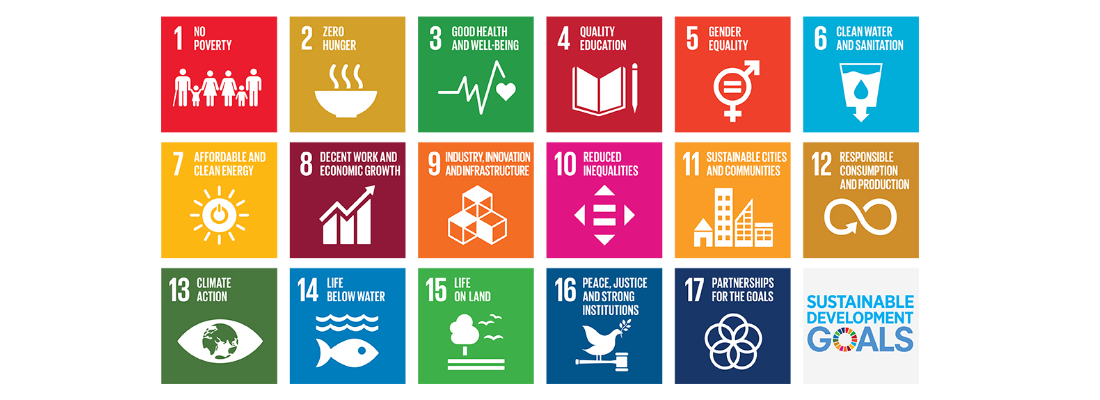CourtHeath was pleased to attend the annual address of the Young Professionals Network of the Victorian Chapter of the Institute of Public Administration Australia (IPAA) this month. The topic for this year’s address: Sustainable Development Goals and the Victorian Public Sector highlights an emerging appetite for government to lead the way when it comes to sustainability.
As we mention in our previous blog about ISO 20400: Sustainable Procurement it is important to note that the term ‘sustainability’ is broadly defined to not only apply to environmental factors, but to incorporate social and economic aspects – the three dimensions of sustainability. The Sustainable Development Goals – SDGs – are 17 interconnected goals launched in January 2016 as part of the 2030 agenda to: ‘end poverty, protect the planet and ensure that all people enjoy peace and prosperity [1]’. The SDGs apply to everyone – from individuals to industry to government.
It was heartening to hear at this year’s YIPAA address how the SDGs are being embraced by government in Australia. It is a ground-breaking year with the publication of ‘Australia’s first Voluntary National Review of the SDGs’ which is due for tabling at the United Nations later this year.
Prime Minister, Malcolm Turnbull notes in the Foreword of the Review:
‘I am pleased to present Australia’s first Voluntary National Review on progress with the Sustainable Development Goals. This Review is a timely reminder of the opportunities afforded by the Goals for cooperation, growth and prosperity for all. Here, we are sharing with the world the best of Australian innovation, ingenuity and partnership in building a stronger future.’
We also heard about how the SDGs are being used across the Victorian Public Sector with Nina Cullen from the Department of Environment, Land, Water and Planning speaking of the value of the SDGs as an organising and reporting framework that is an enabler for partnerships across all levels of government. Cullen described how the SDGs are facilitating ease of reporting and pointed to Plan Melbourne’s commitment for the first time to report on the SDGs.
Similarly, Scott Rawlings from the Office of the Commissioner for Environmental Sustainability explained how current indicators have been aligned with the SDGs. Commissioner, Gillian Sparkes’ end of financial year reflection highlights that ‘the UN’s Sustainable Development Goals are game-changing for the work of the office’. With the organisation’s underpinning legislation – the Commissioner for Environmental Sustainability Act 2003 – being consistent with the SDGs, the Commissioner highlights how the SDGs allow her to take into account ‘the effective integration of economic, social and environmental considerations with the need to improve community, wellbeing and the benefit of future generations’.
Responsible for the State of Environment report – published every five years – the Commissioner has announced the unusual step of preparing an interim State of the Environment report this month in light of the interest in her Office’s work and the upcoming Victorian State election. A final version of the report is to be completed by the end of the calendar year and tabled in early 2019. That report will highlight the use of the SDG’s 230 indicators and 169 targets for future planning and State of the Environment reporting, using an approach that is not only a first for Australia, but of broad global interest with Sparkes scheduled to share it in New York at the International Conference for Sustainable Development in September.
The YIPAA address highlights that now is a watershed moment for sustainability and the adoption of the SDGs by the public sector in Australia. Gillian Sparkes sums this up very well:
‘My reflection as we enter year five of five of this State of the Environment reporting cycle is that there has been a great deal of progress made to improve environmental policy and practice in Victoria during my term as Commissioner. It is particularly pleasing to see the reforms and investments that we are advocating being realised [2]’
Combating modern slavery is another focus of the SDGs. With the introduction of Australia’s modern slavery legislation, governments will be required to ensure fair labour practices throughout the supply chains behind public procurement. The Victorian public sector also works towards the SDGs through its social procurement initiatives and gender equality initiatives.
A participant in the UN Global Compact, CourtHeath seeks to raise awareness about the Sustainable Development Goals and the principles of the Global Compact with business and government organisations in Victoria.
* * *
References
[1] http://www.undp.org/content/undp/en/home/sustainable-development-goals.html
[2] http://www.ces.vic.gov.au/articles/its-delivery-time-eofy-reflection
Image: Sustainable Development Goals, United Nations
Written by Pauline Bernard and Dr Julia Cornwell McKean.
 CourtHeath Consulting
CourtHeath Consulting CourtHeath Consulting
CourtHeath Consulting